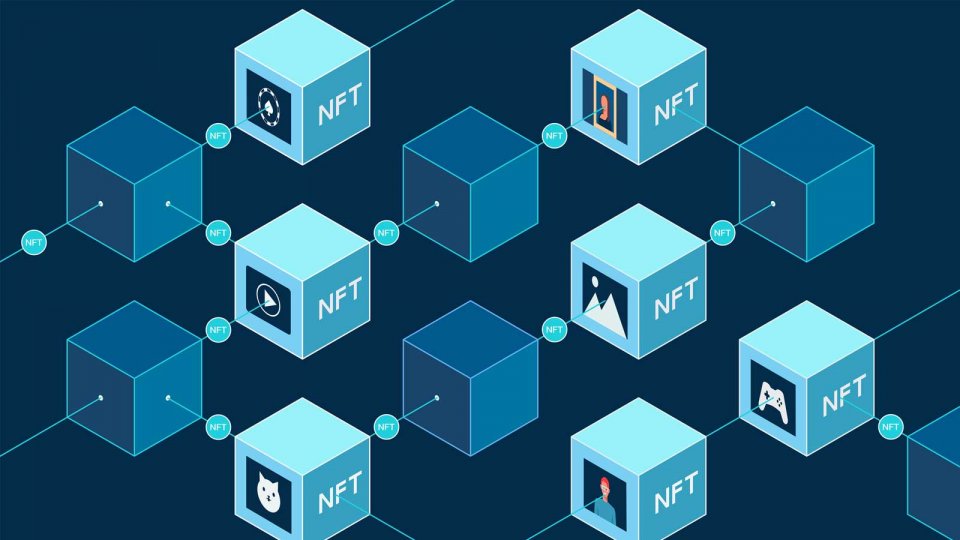Oct06

Introduction
In a world where digital innovation is constantly pushing the boundaries of what's possible, blockchain technology has emerged as a revolutionary force that promises to reshape industries and redefine the way we think about trust and security. Blockchain has garnered significant attention in recent years, and it's not just because of its association with cryptocurrencies like Bitcoin. Its potential extends far beyond digital currencies, touching industries such as finance, supply chain, healthcare, and more. In this blog, we'll delve into the world of blockchain, demystify its underlying principles, explore its applications, and discuss its future implications.
What is Blockchain?
At its core, blockchain is a decentralized and distributed ledger technology that records transactions across a network of computers in a secure and tamper-proof manner. Unlike traditional centralized systems where a single entity has control over the ledger, blockchain operates on a peer-to-peer network, ensuring transparency and trust among participants.
Key Components of Blockchain:
Blocks: Transactions are grouped into blocks, which are essentially data containers. Each block contains a set of transactions, a timestamp, and a reference to the previous block, creating a chronological chain of blocks.
Decentralization: Instead of relying on a central authority, blockchain relies on a network of nodes (computers) that validate and record transactions. This decentralization makes it resistant to censorship and tampering.
Cryptography: Transactions on the blockchain are secured through cryptographic techniques. Each participant has a public key (like an address) and a private key (a secret code). These keys ensure the security and privacy of transactions.
Consensus Mechanism: To agree on the state of the blockchain, nodes in the network must reach consensus. The most well-known consensus mechanism is Proof of Work (PoW) used in Bitcoin, but there are others like Proof of Stake (PoS) and Delegated Proof of Stake (DPoS).
Blockchain Beyond Cryptocurrency
While Bitcoin introduced the world to blockchain, its applications are not limited to digital currencies. Here are some prominent use cases:
Smart Contracts: These self-executing contracts with the terms of the agreement directly written into code have found applications in legal, real estate, and supply chain industries. They automatically execute actions when predefined conditions are met.
Supply Chain Management: Blockchain can be used to track the origin and journey of products in real-time, ensuring transparency and authenticity. This is particularly valuable in industries like food and pharmaceuticals.
Healthcare: Patient records can be securely and efficiently managed on a blockchain, ensuring interoperability and privacy while reducing administrative costs.
Voting Systems: Blockchain-based voting systems have the potential to eliminate voter fraud and increase transparency in elections.
Finance: Beyond cryptocurrencies, blockchain is transforming traditional finance with faster, more secure cross-border payments and the creation of digital assets.
Challenges and Future Directions
Blockchain is not without its challenges. Scalability, energy consumption (in PoW systems), and regulatory concerns are areas that need addressing. However, ongoing research and development are actively working to overcome these hurdles.
The future of blockchain looks promising. It may become a fundamental infrastructure for the Internet of Things (IoT), enabling secure data exchange between devices. Moreover, as blockchain technology matures and becomes more user-friendly, it could see widespread adoption in various industries, bringing about greater efficiency, transparency, and security.
Conclusion
Blockchain technology is undeniably one of the most exciting innovations of our time. Its potential to disrupt traditional systems and establish trust in an increasingly digital world is immense. While it's still evolving, blockchain is poised to transform industries, creating a future where decentralized, transparent, and secure systems are the norm. As we navigate this blockchain-driven future, it's essential to stay informed and explore the numerous opportunities it presents.
Keywords: Blockchain, Change Management, Innovation
 Testing Suez: Economics Are Driving Carriers Back Into the Red Sea
Testing Suez: Economics Are Driving Carriers Back Into the Red Sea Mastering Social Media in 2026: Optimizing Networking and Advocacy for the Digital Age
Mastering Social Media in 2026: Optimizing Networking and Advocacy for the Digital Age Friday’s Change Reflection Quote - Leadership of Change - Systemic Change Follows Failed Governance
Friday’s Change Reflection Quote - Leadership of Change - Systemic Change Follows Failed Governance Who Are You Under Pressure - And Is That the Real You?
Who Are You Under Pressure - And Is That the Real You? LinkedIn Voice for Sales
LinkedIn Voice for Sales